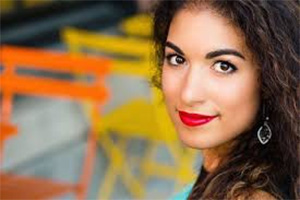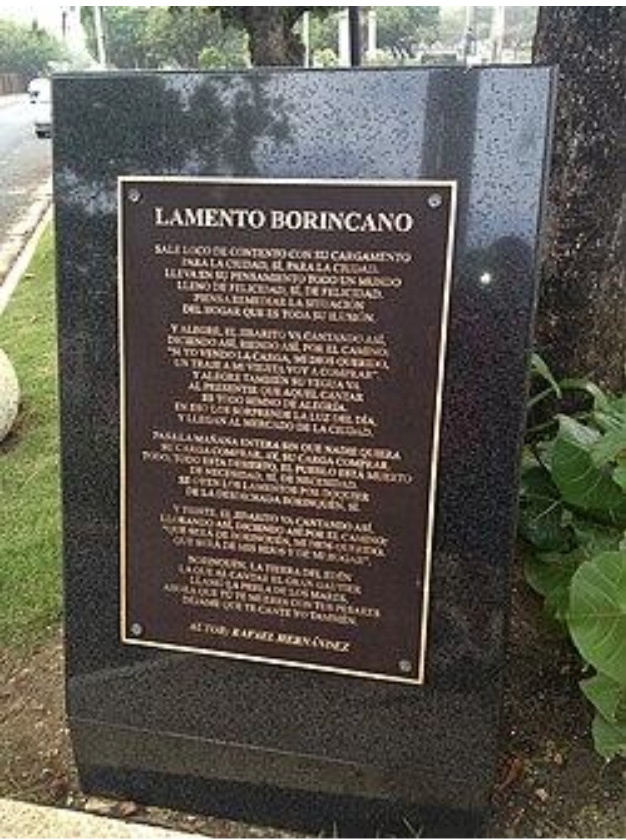by Mike Telin

Performances are on Wednesday, March 20 at 7:30 pm at St. Bernard Catholic Church in Akron, Thursday the 21st at 7:30 at St. Rocco Parish, and Friday the 22nd at 7:30 and Saturday the 23rd at 8:00 at St. Paul’s Episcopal Church. A pre-concert conversation with guitarist Jeremías García begins one hour before each performance. Tickets are available online.
Burgos, who will be making her Apollo’s Fire debut, said during a recent conversation that what she loves about the program is that Jeannette Sorrell has chosen a beautiful variety of music that covers the 15th, 16th and 17th centuries. “I’ll be singing the aria ‘Vivan Los Que Ríen’ (‘long live those who laugh’), from de Falla’s opera La Vida Breve. Some of the music is Spanish-rooted and some is Mexican-rooted, and there’s even Sephardic Jewish music. So there’s really a little bit of everything.”
One selection Burgos is particularly excited to perform is Rafael Hernández Marín’s Lamento Borincano (“Puerto Rican Lament”). “Jeannette asked me if I had anything that I would like to contribute to the program and I told her about this piece. She was so excited that she decided to make her own string arrangement of it.”

In 2018, the original 1930 recording of the song by Canario y Su Grupo was selected for preservation in the National Recording Registry by the Library of Congress for being “culturally, historically, or artistically significant.”
(Left: a monument to the Lamento Borincano in Viejo San Juan.)
Originally from Chicago, Burgos grew up immersed in Puerto Rican culture. “There was a lot of music-making and a lot of dancing.” While in high school she began performing in musicals and singing in church choirs. “All the typical stuff that people who sing at that age do.”
When it came time to think about college, her original intentions were to go into animal science, but she couldn’t shake the idea of pursuing music. “It’s funny because my family was supportive, but they didn’t know how one gets into music school. I didn’t know you could go to music theater school — that never crossed my mind. In my little head, I thought, ‘I like to sing, and people who like to sing go to conservatory.’”
While at the Eastman School of Music, Burgos said that she didn’t connect with opera. “That wasn’t where I was coming from. I was coming from folk music, so I didn’t fit in very well. I wasn’t someone who was in all the operas — I barely got cast for anything. So I did what all the misfits do, I ended up doing all the contemporary music.”
Turning to contemporary music was a good decision. She quickly began collaborating with composers and working with conductors. “I started doing new music left and right. And that’s where my career started because it led me to move to Europe. Soon everyone started to know me as the singer who did contemporary stuff, and there weren’t many of us so word traveled fast. One good thing about contemporary music is that all the composers are alive and they’re able to spread the good word. So that’s kind of what led to where I am now.” Read her impressive biography here.
When it comes to early music, Burgos said that she always thought she had the voice for it and could do a good job with it. But up until now she hasn’t had many opportunities. “I was really excited about this Apollo’s Fire program because not only does it have a theme that is very personal to me, it’s also centuries of music that I have never sung before. So it’s a cool opportunity to put my cultural identity into some music that’s from a time period that’s quite fresh for me. So I’m learning a lot and it’s so fun.”
The soprano said that when Sorrell was creating the program, she went in search of artists who were authentically connected to the repertoire. And Burgos connected with Sorrell through a recommendation by American soprano Dawn Upshaw.
“Dawn is a great mentor of mine. I did my master’s at Bard where she was the director of the program. I was also at Tanglewood with her for two summers. Dawn is one of the most profound people in my life in terms of what she has given me as a mentor and a friend. She showed me what real female strength in leadership looks like. I have nothing but love for Dawn — she’s been there for me during the ugly times of this industry where you do run up against not-so-great people and not-so-great circumstances. She’s the kind of person who gives so generously to her young artists and her students and does not expect anything in return. But it’s very flattering to get a job through Dawn Upshaw.”
Published on ClevelandClassical.com March 18, 2024.
Click here for a printable copy of this article


